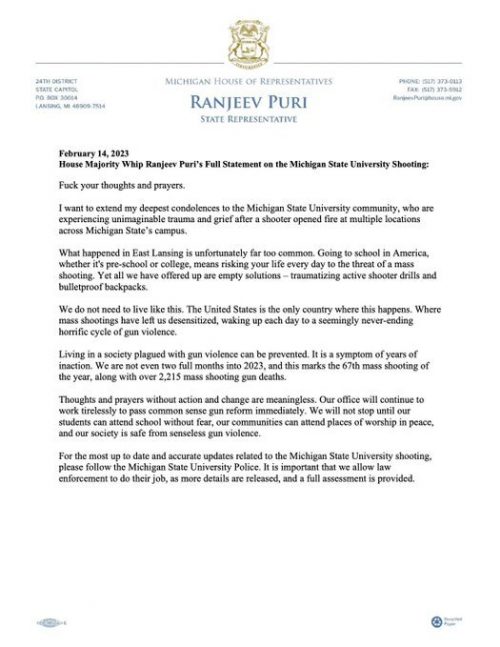He’s fallen far now, and seems to think that thrashing about in the muck will raise him up, rather than make him dirtier. He’s got an op-ed in the Wall Street Journal 🤮, titled “A Scientist’s Sexuality Shouldn’t Matter”. I agree, it shouldn’t, but we’re dealing with facts here rather than a disgruntled conservative’s feelings, and it does matter, unfortunately.
Krauss is upset because federal grant agencies ask applicants about various bits of demographic data.
The Survey of Earned Doctorates is an annual census of new postgraduate research degrees. The National Science Foundation, a federal agency, collects data on academic discipline, sex, race, ethnicity, debt burden, disability and citizenship. The results are used by government, universities and industry to track the demographics of women and minorities in STEM — science, technology, engineering and math.
Well, yes, it’s a survey. That’s what surveys do. Krauss wants them to stop because — wait for it — sexism is over! According to a notorious sex pest, that is.
The sex and race data — the latter has been collected since 1975 — was initially useful in efforts to overcome barriers to women and minorities in academia. Those barriers have largely disappeared, yet quotas and preferential hiring have persisted. After such a concerted effort, demographic disparities are less likely to point to systemic biases in academia than to underlying societal factors.
That’s especially true when it comes to disparities of sex. Women earn a majority of postbaccalaureate degrees over all STEM disciplines in the U.S. Since female undergraduates outnumber male ones by about 3 to 2, this trend is likely to continue. Further, a recent large-scale study found that previous claims about sex bias in academic science were overblown. Tenure-track women and men in STEM receive comparable grant funding, journal acceptances and recommendation letters, and women have an edge in hiring.
What quotas? What preferential hiring? I’ve been in a lot of job searches over the years, and we’re told over and over by the administration that there are questions we can’t ask, and they’re all about avoiding bias. I’d agree that there are fewer biases in academia (but not no biases) because of policies Krauss doesn’t like, and that we’re dealing with larger societal factors, but academia is part of society, if you hadn’t noticed.
A good example of those societal factors: undergraduate women outnumber men, especially at liberal arts colleges like mine. Is this a good thing? Nobody thinks so. It’s not at all because we preferentially admit women — please, high school men, do apply and come to UMM, we love you all — but because when universities stopped discriminating against women, many women saw a college education as a tool for escaping traditional roles. Liberal arts colleges also actively encourage students to explore new ideas, which is appealing if you want something more than a fast-track to a job.
Of course, to a white man the barriers are invisible, so they don’t exist.
Such personal matters are irrelevant to science and essentially invisible. In my 40 years in academia, I have worked with all sorts of colleagues and students. Many were highly eccentric, but that didn’t matter if they were good scientists. As one colleague put it: “You are teaching a chemistry or physics course. Your lectures describe concepts and present equations. ‘Suppose a magnet is moving relative to a loop of wire.’ You barely know any of your students. You give tests and grade them. You have no idea, nor care about, the ‘sexual orientation’ of any of your students. . . . What career barriers are there?”
What a blinkered ass…you might as well say, “no one is trying to rape me, therefore rape and sexual harassment are not a problem anywhere.” Which is just what a self-centered serial harasser would say.
I’m also appalled at the idea that a professor just lectures and gives tests and grades them and doesn’t need to know anything about their students. What university was this at? Krauss should have mentioned it so everyone would know to avoid it. Of course we are and should be aware of our students’ lives, to a degree. We invite deeper interactions than just talking at and grading them — I listen when students are struggling and try to help them resolve conflicts and issues.
I don’t even understand this factory-style approach to impersonal teaching.
Asking respondents if they’re “transgender,” “gender non-conforming,” “nonbinary,” “gender-fluid” or “genderqueer” is patently ridiculous. These are subjective categories, unobservable by others unless the person in question makes it a point to label himself publicly. Most scientists, like ordinary people, couldn’t even define most of these terms, let alone use them as a basis for discrimination.
You don’t need to define the terms, you just need to categorize your students and colleagues as highly eccentric
.
This is peak clueless offensiveness, though. Non-heterosexual identities are patently ridiculous
and mere subjective categories
? They matter to the people who have them, and what also matters is professors who so callously dismiss their lived identities. You know, the ones who think people who aren’t like them are not ordinary people
.
Jesus. Krauss is making me aware that we do discriminate. If we were interviewing a job candidate and they spewed out that stuff about how teaching is just about giving tests and grading them, calling gay and trans students eccentric
and patently ridiculous
, it’s true — there’s no way we’d hire them. We try not to employ assholes.
Also, we’d rather not hire stupid people. Krauss even quotes the goals of these agencies, but doesn’t understand them.
What’s the purpose of all this? Nature magazine paraphrases a statement from the NSF’s chief diversity and inclusion officer, Charles Barber: “Collecting these data will help the NSF and other agencies to analyse employers’ policies and procedures for addressing unintended barriers to employment, advancement and inclusion.” The magazine then quotes Mr. Barber: “This gives us an opportunity to create more opportunities and broaden participation to yield equitable outcomes for the LGBTQIA+ community and others.”
Yes. Collecting data to detect “unintended barriers to employment, advancement and inclusion.” How would you know if an organization discriminates, unintentionally or otherwise, if you have no information about the population of a class known to be subject to bias? How would you know if an organization has successfully knocked down all barriers to advancement if you don’t look? Krauss is advocating willful blindness to abuse and harassment and bias…unsurprisingly, for a guy with his history. If those meddling kids hadn’t noticed and reported his behavior, he’d still have a job!
Does that mean quotas?
No.
If so, how would one even go about determining the “correct” proportion of “queer” or “genderqueer” scientists? The percentage of the population that espouses these labels is so small that any data the NSF gathers will be statistically useless.
The correct proportion is one that roughly matches the proportion in the general population, because that would indicate that there’s probably an absence of selective bias. That wasn’t so hard, Larry.
It’s kind of astonishing to see a physicist dismissing an event as insignificant because the frequency is too low. What happened to 5-sigma, Larry? Does the Higgs boson not matter because it’s so difficult to see that you have to spend billions of dollars to detect it? Most of the stars in the sky are not exploding, so why waste our time looking for novas? The frequency of stellar class A stars is only 0.63% — can we just ignore them, then? Heck, our sun falls into a group that makes up less than 8% of all stars. Must not be important, then.
You know we can detect all kinds of numbers if we just look. Here’s a result of the US census — over a million ‘eccentric’ people live in same-sex relationships.
We also know, because people looked at the data, that over 1.6 million ‘ordinary’ people are transgender, and that the proportion is rising as social barriers fall.
A study published on Friday estimates that nearly 1.64 million people over the age of 13 in the United States identify themselves as transgender, based on an analysis of newly expanded federal health surveys.
The study estimates that about 0.5% of all U.S. adults, some 1.3 million people, and about 1.4%, or 300,000, of youth between 13- and 17-years-old identify as transgender, having a different gender identity than the sex they were assigned at birth.
I really don’t understand this frequency based argument. Can we just ignore 1.3 million people, or worse, oppress and discriminate against them? They’re statistically useless, you know. It’s just that they are people.
Wow, Krauss has become a right-wing cartoon at this point.













